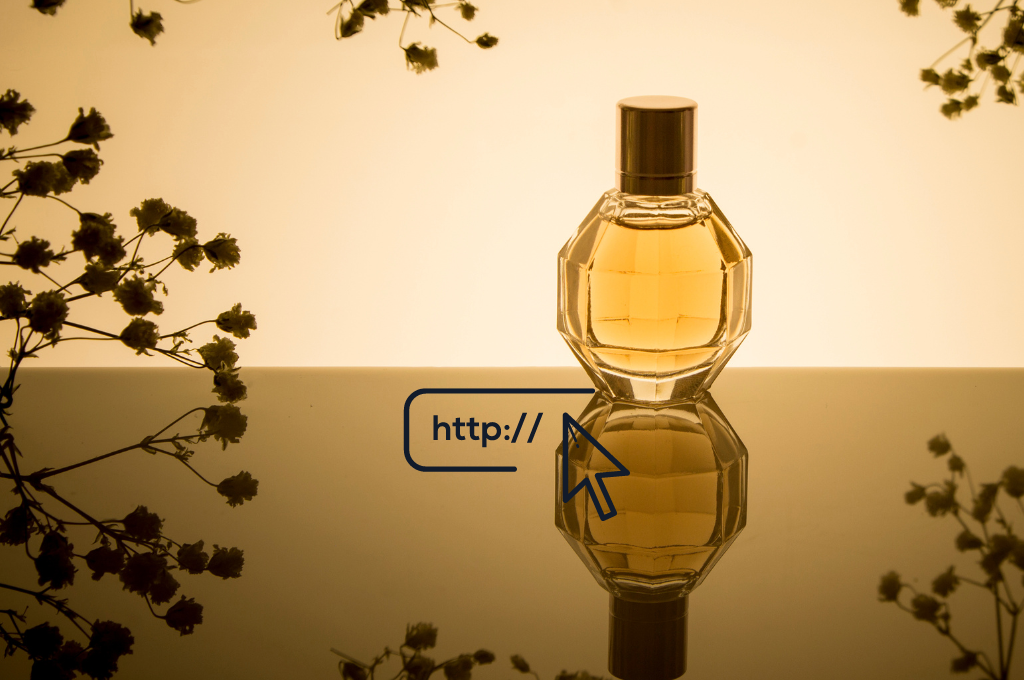“Perfume is like a parenthesis, a moment of freedom, peace, love and sensuality in between the disturbances of modern living.” That is what Sonia Rykiel used to say about perfume.
The history of perfume dates back to prehistoric times, when people noticed that mixtures of plants burned in a bonfire produced a pleasant smell. Hence, the word “perfume” consists of the Latin “per” (meaning “by means of”) and “fumare” (“to fume”). Today, this popular article is used by almost all of us. As an interest in this often expensive and luxurious product is great, more and more distribution channels are being created, both offline and online. Consequently, when buying perfumes, most customers probably ask themselves whether it is better to purchase perfumes in a well-known perfume shop or rather in an online store offering a wide range of products at much more attractive prices. However, this is not the only question that may arise. It is also worth considering whether the same products, often marked with renowned trademarks and placed on the market under the name of world-famous designers, such as Dior, Chanel or Prada, can differ that much as regards their price? An if not, can these cheaper products be counterfeit? Is such a purchase safe?
The answer is not that obvious. One may even be tempted to conclude that such a purchase is not entirely safe, and the level of risk varies. It is worth noting that since the establishment of the European Economic Area (EEA) in 1994, namely an area of free trade and single market comprising the European Union and the European Free Trade Association (EFTA) member states, the marketing of products in the region has been regulated by strictly applicable standards. As indicated above, specific goods manufactured for the international market can only be intended for sale within or outside the EEA. As a result, it sometimes happens that products sold by online stores fall into a grey area with goods imported from abroad and sold outside the manufacturer’s official distribution channels.
This practice is also known as the redirection of a product by using its different prices in different parts of the world. For example, a bottle of perfume can cost $10 in Egypt and $25 in the United States. The distributor takes advantage of this fact and resells the product intended for the Egyptian market to an unauthorised retailer in the USA for $15, while the latter offers it for $20, which is well below the official price required by the manufacturer in the USA. A similar situation may take place in Poland.
Some companies, such as Chanel or Procter & Gamble, are adamant about selling their goods exclusively through official and established distribution channels, because otherwise they not only lose money, but also their image is tarnished. Other brands are less restrictive when it comes to such practices and turn a blind eye to this type of activities. This is because changing the use of a product can help increase short-term profits, especially in the case of the perfumes that do not sell too well. Grey area goods are not considered counterfeit, but rather original products obtained outside the official distribution channel.
Therefore, it may happen that goods marked with a trademark are placed on the market in a way which the owners of these brands have not agreed to, and without the right holder’s full approval. In such a case, the court may order the destruction of the goods in question.
A similar case has been the subject of a recent well-known dispute. The aforementioned company Procter & Gamble, the owner of the Hugo Boss brand, gave no permission for the sale of goods outside the area of their destination. However, the perfumesco.pl online store sold Hugo Boss perfumes in the form of testers, which, in principle, are not intended for sale and are to be marketed outside the EEA. An action was brought before the District Court in Warsaw by Procter & Gamble, which attaches great importance to the protection of its rights, including industrial property rights. The court allowed the claim by obliging the online store to destroy the products marked with the Hugo Boss trademark. Perfumesco.pl appealed against the judgement, but the appeal was dismissed. The case was then considered by the Supreme Court, which, when examining the cassation appeal, stated that Article 286 of the Industrial Property Law Act, which reads: “When ruling on the infringement of a right, the court may, at the holder’s request, decide as to the disposal of unlawfully manufactured or marked products and of the means used in their manufacturing or marking. In particular, the court may order that they should be withdrawn from the market, granted to the holder towards the amount of money awarded to the holder, or destroyed. When adjudicating, the court takes into account the gravity of the infringement and the interests of third parties”, refers only to goods unlawfully manufactured or marked. However, having doubts as to the interpretation of certain provisions of EU law, the court used the preliminary reference procedure to ask the Court of Justice of the EU whether such a regulation could be reconciled with Article 10 of Directive 2004/48/EC (on the enforcement of industrial property rights by destroying goods or removing them from the market). The CJEU stated that the Directive should be interpreted broadly and in accordance with Article 2(1) it applied to all infringements of intellectual property rights defined in Community and national law. Thus, it confirmed that the provision applies to goods that infringe the right holder’s intellectual property rights in any way.
The judgement has sparked off a heated debate in both the consumer and the legal community. Experts believe, however, that it has clarified the interpretation differences that resulted from the construction of Article 286 of the Act, and also positively affects the interests of entrepreneurs, who usually seek the destruction of goods infringing their rights. The currently valid article does not specify whether only counterfeit goods may be destroyed or whether this also applies to goods incorrectly placed on the market. It is worth noting that the CJEU judgement provides a wide scope for interpretation and, at the same time , greater opportunities for right holders to assert their rights.
Buying popular brands such as Dior, Lancôme, Hugo Boss or Chanel outside established sales channels can be risky, and when it comes to unknown websites or sources of sales, this practice may even be dangerous. To avoid any such problems, it is therefore safer to order perfumes from well-known perfume chains, licensed online retailers, specialist perfume boutiques and, of course, directly from the manufacturer, which may also offer attractive prices.



